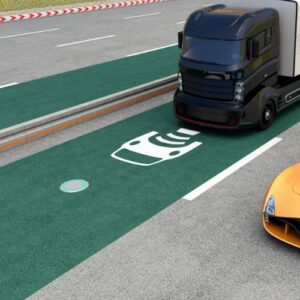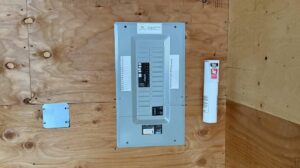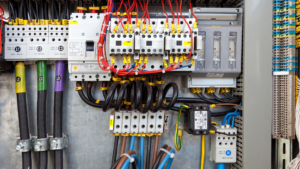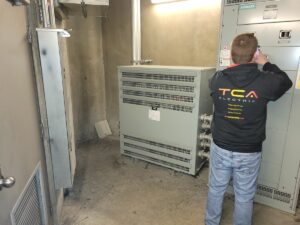EV Charging Companies Have Developed Wireless Chargers for Electric Vehicles
Electric vehicles and charging technologies have significantly advanced since first their introduction to the market. Between more efficient chargers, smart charging capabilities, and general quality improvements all around, EV charging is doing more to add to the EV ownership experience than ever. Now, however, EV charging companies may be about to shake up the entire industry landscape—with new wireless chargers.
You’ve probably seen or used wireless charging technologies before. Wireless phone chargers have grown in popularity over time, albeit at a much smaller scale. But did you imagine that technology could be scaled up? As one of Vancouver’s top companies for EV charger installation, our team at TCA Electric is excited to work with wireless charging tech. While these chargers aren’t widely available—yet—here’s how they could change the market.
How Does Wireless Charging Work?
As far as what a wireless EV charger does, it’s exactly what it sounds like: it enables EV drivers to charge their vehicles without plugging anything in. The chargers that have been prototyped or released to this point essentially look like a pad, either on or embedded into the ground. Using it is simple: just drive an electric vehicle onto the pad to begin charging.
But how does this actually work? The answer lies in induction. While we can’t fully explain how induction works in this blog post, the basics are that both the items being charged (so a phone, or in this case a car) have electrical coils. An electrical current passes through the coil in the charger, creating a magnetic field that induces an electrical current in the receiver coil within the car. This is then converted to direct current which charges the car’s battery.
What Companies Have Developed Wireless EV Charging Devices?
Wireless EV charging units are in various stages of development and implementation across many companies. For example, InductEV recently expanded their wireless charging technology into Canada, for use within transit systems. FLO began testing out ways to add induction charging to their wide network of EV chargers, in collaboration with wireless charging company WiTricity.
That said, this technology has been around for longer than many may realize. Prototypes of wirelessly charging electric vehicles were created as far back as the 1980s, while a handful of systems were implemented or put on the market by around 2010.
Overall, though, this is the most momentum that wireless EV charging has gained in some time, with large EV charging companies taking big steps toward adding this technology to their repertoire.
What Does This Mean for EV Drivers? 
As a result of all this, EV drivers may be wondering: what does this actually mean? Can I install an induction charger in my home?
To the second question, the short answer is not really—at least not yet. There are still several barriers to wireless EV charging that need to be addressed before this becomes widely available to homeowners.
One is a practical issue: it takes a charger and a receiver to charge wirelessly, and for the moment electric vehicles are not being widely manufactured with receivers for induction charging. Some companies are certainly researching this technology and looking into ways to retrofit EVs, but right now this is still a barrier.
Another is cost. The way things look right now, wireless EV chargers will be very expensive compared to the standard plug-in charging units currently on the market. This upfront cost will be prohibitive for most consumers—especially since wireless charging tends to be a bit slower than plugging in, as well.
All that said, this is still an exciting development for the EV charging market. These chargers are very convenient and can change the electric vehicle landscape not just for individual owners, but for public services like bus transit and for commercial fleets as well.
Stay Tuned for Wireless EV Charging Updates!
While wireless EV charging technology is still some ways off, it’s exciting to see so many major companies—including Tesla and FLO—researching this tech and working on ways to implement it into their existing infrastructure.
At TCA Electric, we’ve been a part of the EV revolution ever since the beginning, and we’re always keeping ourselves up to date with the latest developments. The potential for wireless EV charging is huge, and we’ll be excited to start working with this technology that’s just around the corner.
If you’d like to discuss EV charging options for your home or business, reach out to our team today to get started!




